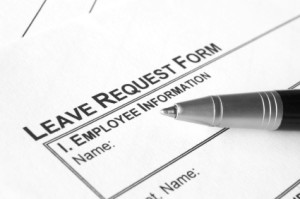 Under the law, it is the employer’s responsibility to determine when FMLA leave is appropriate, to inquire as to specific facts to make that determination, and to inform the employee of his/her entitlement to medical leave, once the employee approaches the employer and reasonably informs the employer of having an FMLA qualifying medical condition. Bailey v. Southwest Gas. Co. (9th Cir. 2002). The regulations of the Department of Labor state that the employee need not expressly assert rights under the FMLA or even mention the term FMLA, but may only state that leave is needed. 29 CFR 825.302(c).
Under the law, it is the employer’s responsibility to determine when FMLA leave is appropriate, to inquire as to specific facts to make that determination, and to inform the employee of his/her entitlement to medical leave, once the employee approaches the employer and reasonably informs the employer of having an FMLA qualifying medical condition. Bailey v. Southwest Gas. Co. (9th Cir. 2002). The regulations of the Department of Labor state that the employee need not expressly assert rights under the FMLA or even mention the term FMLA, but may only state that leave is needed. 29 CFR 825.302(c).
An employer’s lack of knowledge that it violates the law by designating a potential medical leave as personal leave does not protect the employer from liability, as it is ultimately the employer’s duty to know what its obligations under the law with regard to medical leaves of absence are.
What is the difference between personal leave and FMLA leave, and what is the significance or how does it hurt an employee that a potential FMLA leave was designated as personal leave?
– When a qualifying FMLA leave is treated as personal leave, it means that the employee is subject to the control and discretion of his supervisor in taking the leave that he otherwise would have been entitled to by law. Managers usually have a discretion to shorten leave, deny leave, or impose other conditions on an employee’s personal leave without any legal consequences, since these kinds of leaves are a matter of internal company policy. When the leave properly designated as FMLA, no such discretion exists, an the employer must provide the rights to which an employee is entitled by law. Also, be sure to avoid these two common mistakes when requesting medical leave or disability leave.